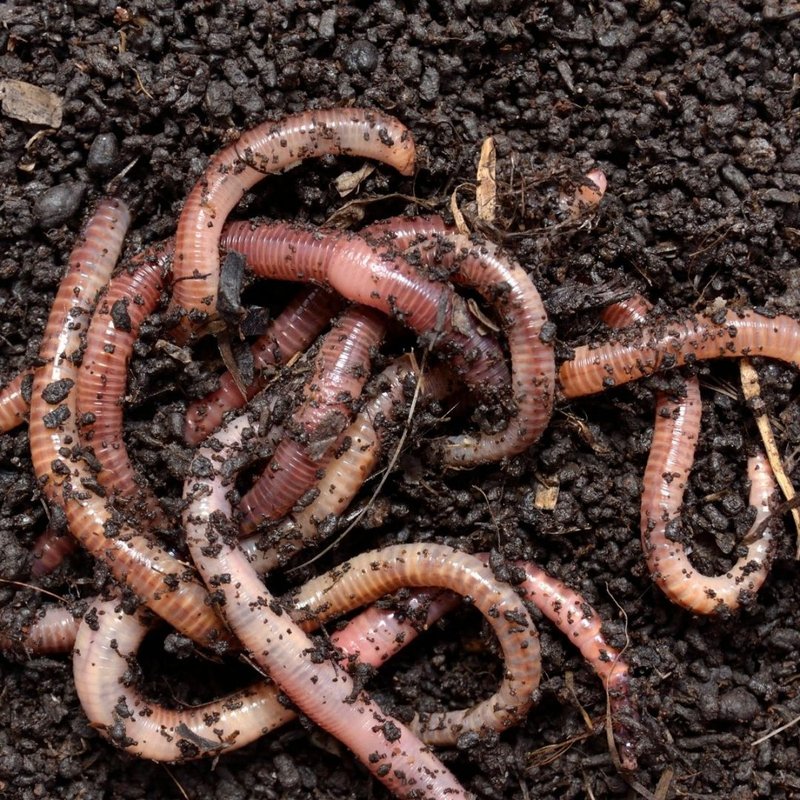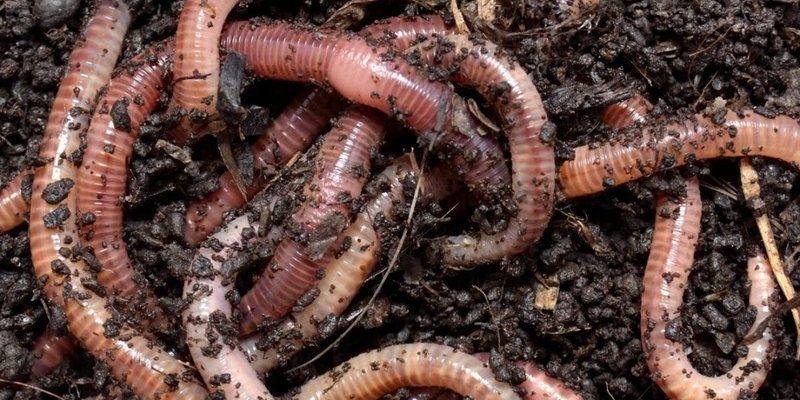
Honestly, the answer is a bit more complex than just “yes” or “no.” Earthworms are amazing decomposers, and they thrive on all sorts of organic materials. Think of them as nature’s recyclers. They take what’s dead and transform it into something new and beneficial. So, let’s dig deeper and explore how earthworms interact with dead plant roots and why this matters for your garden or any ecosystem.
What Do Earthworms Eat?
Earthworms have a pretty varied diet. While they don’t exactly sit down for a meal like we do, they will consume a variety of organic materials found in the soil. Their main food sources include:
- Decaying leaves: These are a favorite snack for earthworms as they break down, adding nutrients back into the soil.
- Dead roots: Yes, they do munch on dead plant roots, but it’s not their primary food source.
- Microorganisms: Tiny bacteria and fungi that thrive on decaying matter are also on the menu.
So, while earthworms do eat dead plant roots, it often happens alongside other decaying organic materials. They act like little garbage trucks, cleaning up the mess and recycling it into nutrient-rich casts, which can improve soil quality.
How Do Earthworms Process Food?
Here’s the interesting part: when an earthworm consumes organic matter, it doesn’t just swallow it whole. These fascinating creatures have a unique digestive system. First, earthworms take in soil and organic material through their mouths.
Let me explain the process a bit more:
1. **Mouth:** Earthworms use their mouths to suck in soil, which contains nutrients and decaying material.
2. **Gizzard:** After the food passes through their esophagus, it reaches the gizzard. This muscular part of their digestive system grinds up the material, similar to how our teeth break down food.
3. **Intestines:** Once the food is broken down, it moves into the intestines where the real magic happens. The intestines absorb nutrients, and all that remains is waste.
The waste, now enriched with nutrients, is then expelled back into the soil as worm castings, acting like nature’s own fertilizer. This is why earthworm activity is so beneficial for soil health.
Do They Prefer Fresh Roots or Decayed Ones?
You might wonder whether earthworms have a preference for fresh roots or if they are more likely to snack on decayed ones. Generally, earthworms prefer dead plant material. New, healthy roots are still hard and fibrous, making them less appealing for munching.
When roots die, they start to decompose and become softer, making them easier for earthworms to consume. Here’s why that matters:
– **Nutritional Value:** Decomposed roots are rich in nutrients that earthworms need to thrive.
– **Soil Structure:** As earthworms break down dead roots, they help aerate the soil, improving its structure.
– **Microbial Life:** Decayed roots attract a community of microorganisms that also contribute to the decomposition process.
So, while earthworms might nibble on fresh roots occasionally, they really do their best work on the softer, decayed ones.
Why Are Earthworms Important for Gardens?
You might be wondering why all this matters. Well, earthworms are like unsung heroes in gardening and agriculture. Their eating habits and behaviors contribute to a well-balanced ecosystem. Here’s how:
1. **Soil Fertility:** As earthworms eat and break down organic matter, they create nutrient-rich castings that enrich the soil. This makes it easier for plants to absorb nutrients.
2. **Soil Aeration:** Their burrowing habits help create spaces in the soil, allowing air and water to reach plant roots more effectively.
3. **Improved Microbial Activity:** Earthworms help maintain a healthy balance of microorganisms in the soil, which is critical for plant health.
With earthworms doing their job, your plants have a better chance to flourish, making for a lush and vibrant garden.
What Happens When Earthworms Eat Dead Roots?
When earthworms consume dead roots, a fascinating process kicks into gear. As they break down these roots, several things occur:
– **Nutrient Release:** The breakdown releases nutrients back into the soil, which are essential for plant growth. This includes key elements like nitrogen, phosphorus, and potassium.
– **Enhanced Soil Structure:** The process of digestion and excretion helps improve soil texture. The casts created by worms are often more crumbly, which aids in water retention and drainage.
– **Biodiversity Promotion:** The decay of roots encourages diverse microbial life, further enriching the soil ecosystem.
So, each time an earthworm munches on dead roots, it’s like they’re giving back to the earth in a big way.
How to Encourage Earthworms in Your Garden
If you want more earthworms to help with your garden, there are a few simple steps you can take:
1. **Add Organic Matter:** Regularly add compost or decaying leaves to your garden. This helps attract earthworms to your space.
2. **Avoid Chemical Fertilizers:** Chemicals can be harmful to earthworms and disrupt their natural ecosystem. Stick to organic practices if you can.
3. **Moisture Matters:** Earthworms thrive in moist environments. Make sure your soil is well-watered but not waterlogged.
By creating a friendly environment for earthworms, you’re setting your garden up for success.
Final Thoughts on Earthworms and Dead Plant Roots
In summary, earthworms play a vital role in breaking down dead plant roots along with other organic materials, turning them into valuable nutrients for the soil. They do this not just for themselves, but for the entire ecosystem as well. By understanding how these little creatures work and the importance of their role, you can make better choices for your garden and the environment.
So next time you see an earthworm, think of it as a little hero in your garden, turning dead roots into life and vitality for your plants. Keep encouraging their presence, and watch your garden thrive!

